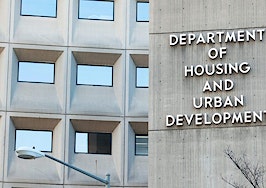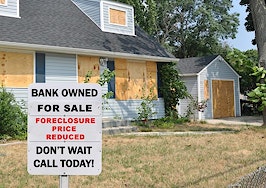- According to the new guidance, landlords are prohibited from using limited English proficiency as a reason for intentional discrimination.
- HUD also amended the 2012 Equal Access Rule to include protection for transgender and gender non-conforming individuals.
The Department of Housing and Urban Development released two major updates this week regarding the treatment of buyers and renters who have limited English proficiency or are members of the transgender community.
New guidance for renters with limited English proficiency
On Sept. 15, HUD issued new guidance on Fair Housing Act protections for people who have limited English proficiency. The FHA only covers discrimination on seven protected bases, such as race, color, religion or sex, which would leave the 9 percent of renters who have limited English proficiency out in the cold.
“Having a limited ability to speak English should never be a reason to be denied a home,” said Gustavo Velasquez, HUD Assistant Secretary for Fair Housing and Equal Opportunity in a press release.
But HUD identified a loophole that now allows this demographic to be officially protected. One of the seven protected bases is national origin, and according to HUD officials, national origin is “closely linked to the ability to communicate proficiently in English.”
Because of the new guidance, landlords are now “prohibited from using limited English proficiency selectively or as an excuse for intentional housing discrimination.”
For example, landlords can no longer:
- Apply a language-related requirement to people of certain races or nationalities
- Post advertisements that contain blanket statements, such as “all tenants must speak English” or immediately turn away applicants who are not fluent in English
- Target racial or national origin groups for scams related to housing
Furthermore, landlords are banned from using limited English proficiency “in a way that causes an unjustified discriminatory effect.”
For these cases, the provider will go through a three-step legal process that evaluates the statistical evidence of a discriminatory effect, the landlord’s current policies and practices, and the option for an alternative, less discriminatory policy.
Sexual orientation/gender identity rule updated
In 2012, HUD released the Equal Access Rule that guaranteed housing assisted or insured by HUD would be open to all eligible families and individuals “without regard to actual or perceived sexual orientation, gender identity or marital status.”
However, families and individuals could be turned away from single-sex emergency shelters with shared sleeping areas and bathrooms.
But, according to the new final rule released on Sept. 20, transgender and gender non-conforming individuals are now allowed to live in single-sex projects, such as emergency shelters, that are funded through the Department’s Office of Community Planning and Development.
Moreover, these individuals must be given access to programs, benefits, services and housing based on the gender they identify with without “intrusive questioning” or being asked to provide documentation of their gender.
“Today, we take another important step to ensure full acceptance of transgender and gender non-conforming individuals in the programs HUD supports,” said HUD Secretary Julián Castro.
“This new rule will ensure equal access to the very programs that help to prevent homelessness for persons who are routinely forced to choose between being placed in facilities against their gender identity or living on our streets.”











